Speakers By Topic


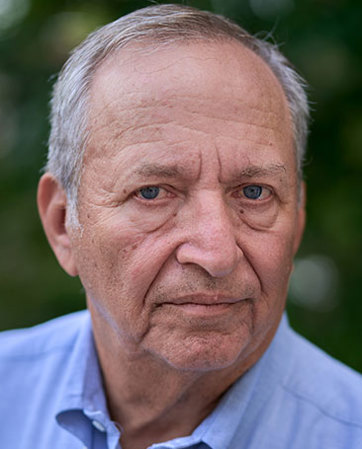
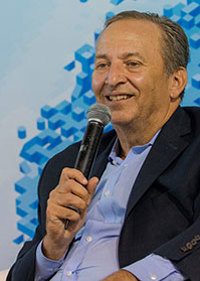
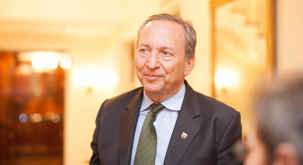
"Larry Summers was fantastic! Both the VIP breakfast and his Fireside Chat were full of insights and wisdom."
-American Property Casualty Insurance Association"As always, Dr. Summers was a great addition to our conference and he started the event off on a high note. He never fails to add interesting insights and is very gracious in saying nice things about our company!"
-BCA Research"Thank you so much for the quick turn around– we thought [Dr. Summers’] session was a huge success."
-Conexus Financial"He was on-time, cordial and engaging."
-PIMCO"It was a huge pleasure to host an event with Mr. Summers. The meeting was attended by the partners of BTG Pactual led by CEO Andre Esteves, Persio Arida, Marcelo Kalim, Huw Jenkins, Mateus Carneiro and was hosted by the CEO of BTG Pactual Peru, José Antonio Blanco. Summers spoke in front of more than 200 guests on its insider view of international politics, the US economy, the management of monetary policy by the Fed, the Chinese slowdown, among others and all attendees were impressed with his presentation. Nothing but great feedback regarding his appearance."
-BTG Pactual"Friday's forum was great. Prof. Summers did an excellent presentation and was well received by the participants. A lot of participants showed great interest in his presentation, including the top management of Doosan Group."
-Doosan"Larry was great and delivered exactly what we wanted from him. He is a professional and he comes across very authoritative and thoughtful."
-BCA Research"I can't tell you what a wonderful day we had ... Dr. Summers is fantastic, he was so generous and warm. It was an honor having him with us at the GAF. "
-Dueto Talentos, on behalf of the Global Agriculture Forum event"Thank you most sincerely for gracing the recent Regent University Clash of the Titans debate. Your depth of knowledge and keen insight helped make this by far the most profound debate in the series."
-Regent University"Dr. Summers was an unexpected delight. Honestly, he was a joy on-site and he did a great job. He was really gracious and everyone loved him. I should have scheduled more time for his keynote; usually speakers fatigue after an hour but he definitely could have kept this audience captivated for much longer."
-Institutional Investor"Larry was insightful, brilliant, provocative and very engaging . "
-Keith W. Luke, Commonfund"The conference was extremely successful. Larry's speech was extremely well received. He is a master speaker!"
-Chinese Finance Association"Summers was engaging and dynamic!"
-Charles River Ventures"I want to thank you for participating in our Economic Roundtable earlier this week. You provided us with some interesting insights into the direction of the U.S. economy. Despite the divergence of views on some issues, a rigorous discussion of these issues is critical in helping us refine our investment strategy. "
-Thomas E. Reinhart, Texas Pacific Group"Opening the conference with a high level discussion of the current economic climate really set the tone for the discussions to follow. We received very positive feedback from our attendees on the quality and insightfulness of your conversation ... It was a privilege to work with you. "
-Gail Chapman Haynes, President, Pension Real Estate AssociationGlobal Economic Outlook: Beyond the Headlines
Drawing on his broad perspective and extensive experience as a senior public official in both the U.S. and abroad, LARRY SUMMERS evaluates key global economic trends, decoding what they will mean for investors and corporate strategies moving forward. Shedding light on the major forces shaping the economy that go far beyond the breaking news cycle of government shutdowns, tax reform, and midterm elections, Summers will provide an illuminating near and midterm outlook for businesses. Taking a deep dive into crucial, overriding issues such as the continuing evolution of globalization and trade; revolutions in technology and the means of production; and the growing polarity in global systems, Summers’ insights will leave individuals and organizations equipped to navigate, and profit from, the future global economy.
Economic Possibilities for Our Children
Dr. LARRY SUMMERS believes what we have seen so far is only the beginning of profound changes in the global economy that will arise from technological innovation. He describes how the world will be different a decade and a generation from now and he offers advice on how businesses, investors, managers, and governments should prepare. Dr. Summers foresees great opportunities, but warns that success cannot be taken for granted.
The American Future
Dr. LARRY SUMMERS draws on his extensive experience to present a compelling vision for what the United States must do to restore to prosperity at home and strengthen its influence abroad. At a moment when American strength and vitality is both more in question and more essential than ever before, Dr. Summers discusses the key challenges and opportunities facing America.
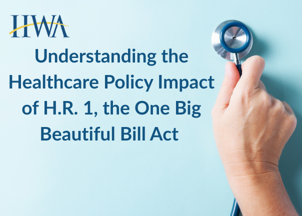
H.R. 1 and the Future of Healthcare: The world’s top policy and healthcare experts help organizations navigate transformational change
The Harry Walker Agency represents a powerhouse roster of trusted public officials, economic thinkers, clinical leaders, and policy insiders who bring unmatched clarity to the complex realities of healthcare reform. As H.R. 1, the One Big Beautiful Bill Act dominates headlines and boardroom agendas, these experts deliver timely, nonpartisan insights that help audiences across industries understand what’s at stake—and how to respond.
BILL FRIST, MD and FRANCIS S. COLLINS, MD, PHD bring clinical, scientific, and policy leadership to the discussion. SENATOR JOHN TESTER, DR. ROCHELLE WALENSKY, MD, MPH, and GOVERNOR CHRIS SUNUNU unpack how this sweeping legislation could reshape access, affordability, and innovation. Former Speakers and legislative insiders—JOHN BOEHNER, KEVIN MCCARTHY—alongside strategists like RAHM EMANUEL and KARL ROVE—offer candid, behind-the-scenes understanding of the Congressional dynamics driving this landmark bill. Top economic strategists including LAWRENCE SUMMERS, GARY COHN, EMILY OSTER, and JACK LEW break down the financial impact for business, government, and everyday Americans. Physician-economists and data storytellers like ANUPAM B. JENA, MD, PHD, JOEL BERVELL, and SHARON MALONE, MD bring the human implications of policy to life—translating data into action.
Whether you’re advising clients, guiding teams, shaping public discourse, or preparing for disruption, this one-of-a-kind group offers the insight and credibility your audience needs—through keynotes, moderated forums, fireside chats, or private executive briefings.

Larry Summers likens the current pain in tech to the dot-com bubble – “Peloton equals Pets.com”
Former U.S. Secretary of the Treasury LARRY SUMMERS compares the current pain in tech to the dot-com bubble in riveting talks. Summers, an expert on domestic economics and leading authority on international finance, offers a reality check to those feeling the impact of the downturn: “Part of it is not coming back.” The former Chief Economist of the World Bank talks audiences through the confluence of events that has led to massive layoffs, including the fallout from the FTX implosion, “the immediately consequential” economic cold war with China, and what’s ahead for crypto and big tech regulation in the U.S.
For those apprehensive that we’re entering another 2008, Summers astutely refocuses the conversation, speaking to the combination of a tech sector that has over-extrapolated from past success – “a kind of excessive euphoria in tech” – and the overheating of the economy, resulting in the raising of real interest rates. Summers remains optimistic, identifying growth sectors ripe for transformation and metrics that deserve a second look, like the real measure of productivity. “There will be opportunity in distress for people to find jewel and build jewels; there will be new technologies and new business ideas that will succeed.”

Foremost economist Lawrence H. Summers’ practical approach to artificial intelligence (AI)
Harvard professor and former US Secretary of the Treasury (1999-2001), Chief Economist of the World Bank (1991-93), Director of the US National Economic Council (2009-10) LAWRENCE H. SUMMERS has stepped onto OpenAI’s board to shape discussions of labor, productivity, & artificial intelligence (AI).
At the Fortune Innovation Forum, Summers discussed AI’s potential impact on the workforce: emotional intelligence, EQ, will be more important than IQ. “If one takes a view over the next generation,” Summers told Forbes, “this offers the prospect of not replacing some forms of human labor... AI will substitute for a doctor making a difficult diagnosis…before it substitutes for a nurse’s ability to hold a patient’s hand when the patient is frightened.”
Watch Larry Summers in conversation with Bloomberg >>
Watch Larry Summers provide perspective at the Peterson Institute >>

Lawrence H. Summers’ column on Project Syndicate covers economics, geopolitics, and more
As US Secretary of the Treasury (1999-2001), Chief Economist of the World Bank (1991-93), Director of the US National Economic Council (2009-10), and President of Harvard University (2001-06), where he is currently University Professor, LAWRENCE H. SUMMERS is uniquely qualified to write on global issues in his Project Syndicate column:
Read Lawrence H. Summers’ writing on Project Syndicate here >>

Larry Summers is in high demand for his insight on the intersection of economics and foreign policy
Most recently, LARRY SUMMERS has provided insight on the geopolitical landscape, especially in terms of the effectiveness of economic sanctions on Russia in response to the crisis in the Ukraine. Appearing on CNN’s GPS with Fareed Zakaria, Summers said, “We have inflicted more damage, more quickly with more unity on our side on the Russian economy that almost anyone would have expected. There is more we can do to cut off Russian financial institutions and energy production and we need to keep those threats in reserve to exert maximum leverage.” While acknowledging the complexity of this strategy, the former U.S. Treasury Secretary offers his expert analysis of how these sanctions will impact the markets, supply chains, and inflation, pivoting to focus on the preservation of world order.
With his breadth of experience, Summers is a highly regarded voice in this dynamic conversation, and as a keynote speaker he receives rave reviews such as, “Larry was insightful, brilliant, provocative, and very engaging,” (Commonfund) and “the conference was extremely successful. Larry’s speech was extremely well received. He is a master speaker!” (Chinese Financial Association).

Larry Summers is a leading voice on the global economy
LAWRENCE SUMMERS' tenure at the U.S. Treasury coincided with the longest period of sustained economic growth in U.S. history, and during the Obama Administration he emerged as a key economic decision-maker who worked directly in crafting policy solutions to respond to the economic crisis.
Summers has been in-demand to speak everywhere from the World Economic Forum to Federal Reserve Banks nationwide. Drawing on his broad perspective and extensive experience as a senior public official in both the U.S. and abroad, Summers evaluates key global economic trends, decoding what they will mean for investors and corporate strategies moving forward. He sheds light on the major forces shaping the economy that go far beyond the breaking news cycle to provide an illuminating near and midterm outlook for businesses. His rave reviews from recent events include: "Larry was great and delivered exactly what we wanted from him. He is a professional and he comes across very authoritative and thoughtful." (BCA Research).
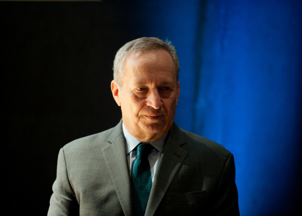
Larry Summers has a trillion-dollar climate spending plan
Former Treasury Secretary LARRY SUMMERS is calling on the World Bank to loosen its lending limits to combat climate change and think in the "trillions not the billions." Now that President Biden has passed some $370B in new domestic climate spending, focus is shifting to the international arena and Summers wants bank reform to be a central part of that discussion. In an op-ed for Project Syndicate titled “A New Chance for the World Bank,” Summers offers an illuminating view of the potential for the organization to, as he says, “step up and do the right thing.” He lays out a step-by-step roadmap to position the World Bank as a major vehicle for crisis response, post-conflict reconstruction, “and, most importantly, for supporting the huge investments necessary for sustainable and healthy global development.” President Bill Clinton said that Larry Summers “has the rare ability to see the world that is taking shape and the skill to help to bring it into being.”
As his prescient commentary on rising inflation over the past year generated headlines and led to countless appearances in the media – with everyone from the public to private companies to President Biden turning to him for guidance – Summers has pivoted his attention to the global challenges of combatting climate change. As the renowned economist told Axios, the World Bank should take "the immense opportunity to catalyze finance and greatly accelerate the green energy and green agricultural transition.” During the 1990s, he was a leader in crafting the U.S. response to international financial crises arising in Mexico, Brazil, Russia, Japan, and Asian emerging markets. As one of President Obama’s chief economic advisors, Dr. Summers’ thinking helped shape the U.S. response to the 2008 financial crisis, to the failure of the automobile industry, and to the pressures on the European monetary system. Summers’ keen ability to name problems while they are still on the horizon and offer actionable strategies to offset their arrival makes him an in-demand voice for conversations where clarity, clear-headedness, and solutions are on the agenda. Summers recently said, “this is a moment that is extraordinary and urgent in the economic and financial sphere in the same way that it is in the security sphere.”
Former Treasury Secretary Lawrence H. Summers is one of America’s leading economists. In addition to serving as 71st Secretary of the Treasury in the Clinton Administration, Dr. Summers served as Director of the White House National Economic Council in the Obama Administration, as President of Harvard University, and as the Chief Economist of the World Bank.
Dr. Summers’ tenure at the U.S. Treasury coincided with the longest period of sustained economic growth in U.S. history. He is the only Treasury Secretary in the last half century to have left office with the national budget in surplus. Dr. Summers has played a key role in addressing the major financial crisis for the last three decades.
During the 1990s, he was a leader in crafting the U.S. response to international financial crises arising in Mexico, Brazil, Russia, Japan, and Asian emerging markets. As one of President Obama’s chief economic advisors, Dr. Summers’ thinking helped shape the U.S. response to the 2008 financial crisis, to the failure of the automobile industry, and to the pressures on the European monetary system. Upon Summers’ departure from the White House, President Obama said, “I will always be grateful that at a time of great peril for our country, a man of Larry’s brilliance, experience and judgment was willing to answer the call and lead our economic team.” The Economist recognized his influence when it defined the “Summers Doctrine,” an approach to economic policy during financial crises that fuses a microeconomic “laissez faire” mentality with macroeconomic activism. “Markets should allocate capital, labour and ideas without interference, but sometimes markets go haywire, and must be counteracted forcefully by government.”
Summers’ five years as President of Harvard represented a time of major innovation for the University. He focused on equality of opportunity and removing all financial obligation from students with family incomes below $60,000 a year. He launched a major effort to make Boston, and Cambridge in particular, the global leader in life sciences research, with the formation of major programs for stem cell research and genomics. Perhaps most importantly, he led efforts to renew Harvard College with dramatic increases in study abroad programs, faculty-student contact, and collaboration across the University during his tenure.
Currently, Dr. Summers is the President Emeritus and the Charles W. Eliot University Professor at Harvard University, where he became a full professor at age 28, one of the youngest in Harvard’s recent history. He directs the University’s Mossavar-Rahmani Center for Business and Government. Summers was the first social scientist to receive the National Science Foundation’s Alan Waterman Award for scientific achievement and, in 1993, he was awarded the John Bates Clark Medal, given to the most outstanding economist under 40 in the United States. He was elected to the National Academy of Sciences in 2002. He has published more than 150 papers in scholarly journals.
Summers chairs the board of the Center for Global Development and serves as vice chair of the Peterson Institute for International Economics and as a board member or advisory board member to a number of other non-profits and public policy organizations. He is a contributor to Bloomberg’s Wall Street Week and a contributing columnist to The Washington Post. He is an advisor to businesses and investors and serves on the board of Square, States Title/Doma and SkillSoft Corporation. He also consults with or advises a range of companies in the finance and technology sector, including D. E. Shaw & Co and Citi.
He has co-chaired major international panels ranging from the G20s High Level Independent Panel on Pandemic Preparedness and Response to the Council on Foreign Relations study group on the Transatlantic Relationship to the Center for American Progress’ Commission on Inclusive Prosperity. He launched a Task Force on Fiscal Policy with Mayor Bloomberg and chaired the Commission on Global Health, lauded by the UN Secretary General who noted that it “will bring more than health – it will bring equity, and contribute to a life of dignity for all.”
President Bill Clinton said that Larry Summers “has the rare ability to see the world that is taking shape and the skill to help to bring it into being.” He has been recognized as one of the world’s most influential thinkers by Time, Foreign Policy, Prospect and The Economist magazines among many others. In his speeches, television appearances, newspaper columns and public commentary, he continues to move forward the debate on national and global economic policy.